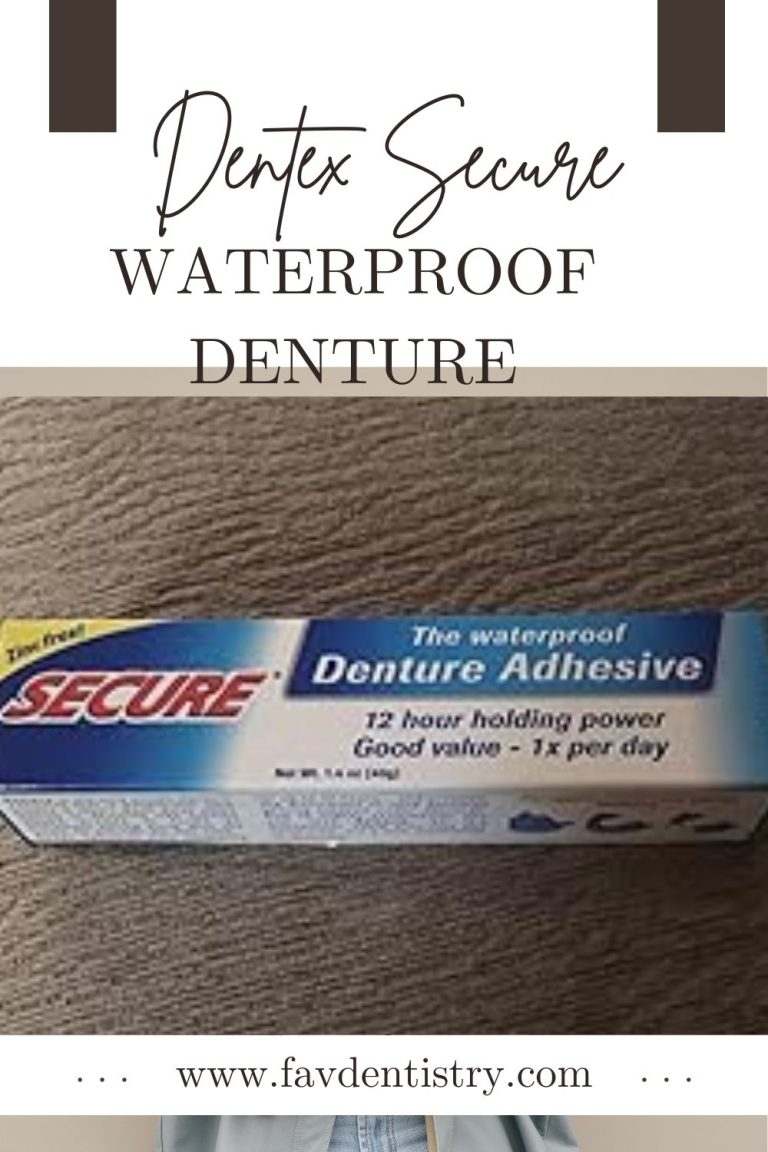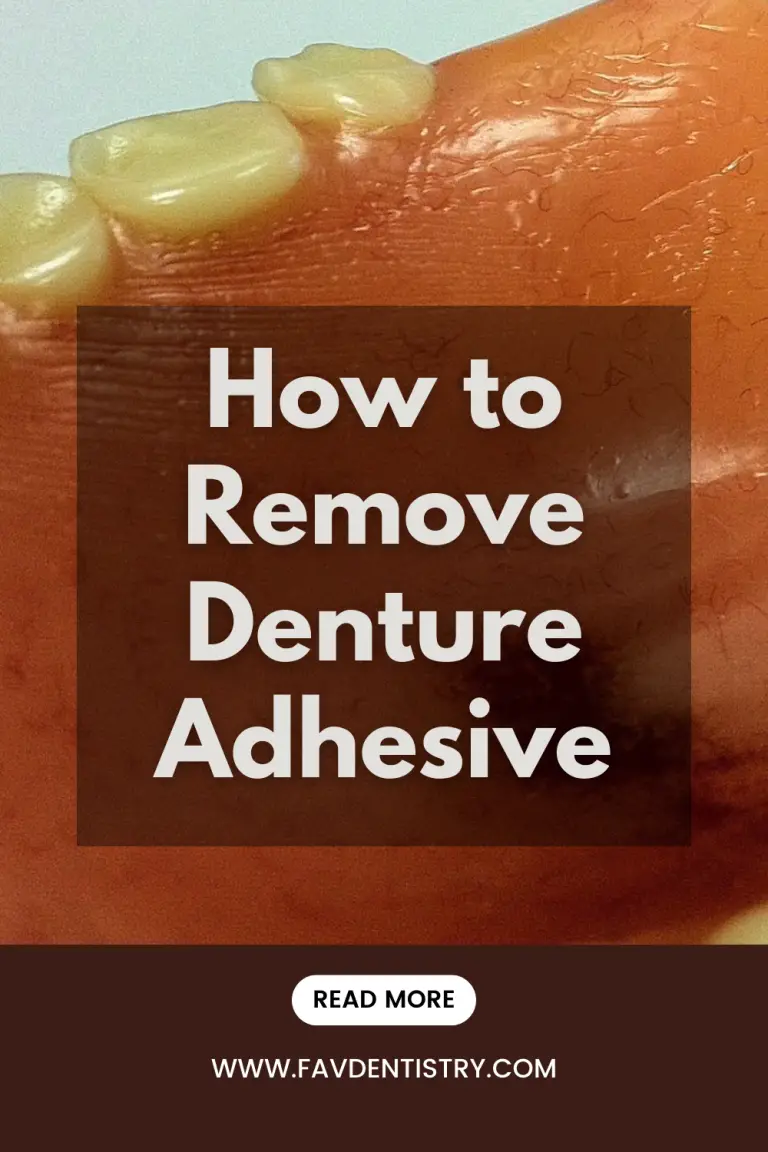What are Permanent Dentures?
Last Updated on 6 months by DR. ALBIN SIPES
Permanent dentures are a type of dental prosthesis that is intended to replace missing teeth. They are typically made from artificial materials such as porcelain or acrylic and are attached to the gum tissue with special adhesives. Permanent dentures can be removable or fixed in place.
If you’re considering dentures, you may wonder what permanent dentures are. Unlike traditional removable dentures, permanent dentures are cemented into place. This makes them more stable and less likely to slip or move around in your mouth.
Permanent dentures can also help to preserve the natural shape of your jaw and face. There are a few things to remember if you’re considering permanent dentures. First, they require a significant investment of time and money.
The procedure to place them is usually more complex than for traditional dentures, so it’s vital to ensure you’re ready for that commitment. Second, because they’re permanently attached, it’s more difficult to adjust or repair them if there are any problems down the road. So again, it’s essential to be sure you’re making the right decision before moving forward with permanent dentures.
If you think permanent dentures might be fitting for you, talk to your dentist about your options and what would work best for your needs.
How Long Do Permanent Dentures Last?
Permanent dentures are intended to last a lifetime. They are made of materials meant to withstand everyday use’s wear and tear. However, they are not indestructible.
With proper care, permanent dentures should last many years. The lifespan of permanent dentures depends on several factors, including the material used and how well they are cared for. The most durable permanent dentures are made from high-quality porcelain or ceramic.
These materials can withstand years of use without showing signs of wear. However, even the best-made dentures will eventually need to be replaced due to normal wear and tear. Additionally, the fit of permanent dentures can change over time as the shape of your mouth changes with age.
This may require getting new dentures or having your existing ones refitted periodically. Proper care is essential to prolonging the life of your permanent dentures. Be sure to brush them daily with a soft-bristled toothbrush and nonabrasive toothpaste.
Avoid using harsh cleaners or abrasives, as these can damage the surfaces of your dentures. It’s also important to soak them in a Denture Cleanser overnight at least once a week to remove any built-up plaque or bacteria.
What are the Disadvantages of Permanent Dentures?
There are a few disadvantages to permanent dentures. The permanent denture cleaning process is tricky. If you don’t brush and floss them well, they can trap food and bacteria, leading to bad breath and an increased risk of gum disease.
Another downside is that they can make your mouth feel dry and uncomfortable. And if they don’t fit well, they can cause sores or irritation in your mouth. Finally, dentures can be expensive, so if you’re on a budget, you might have better options.
Are Permanent Dentures Better Than Regular Dentures?
The answer, however, is not so cut and dry. Both have pros and cons, and the best option for you will ultimately depend on your needs and preferences.
Permanent dentures are just that – permanent. Dental implants anchor them in place, meaning they won’t slip or move around in your mouth as traditional dentures can. This can be a significant advantage for people who have trouble keeping their dentures in place or who are self-conscious about them moving when they talk or eat.
Another significant benefit of permanent dentures is that they look and feel more natural than regular ones. Because they’re securely fastened in place, they don’t cover as much of your gums, which gives them a more realistic appearance. And because they don’t rely on suction to stay put, eating and speaking with permanent dentures is usually more accessible and more comfortable than traditional ones.
Of course, all these benefits come at a price – literally. Permanent dentures are significantly more expensive than regular ones, upfront and over time (due to the need for periodic adjustments). They also require surgery to install the implants, which comes with its risks (albeit relatively minor ones).
The common question now is which type of dentures are good? That depends on cost, comfort level, appearance concerns, and lifestyle considerations. If you want the most natural-looking and feeling teeth, permanent dentures are the way to go.
How Do They Put in Permanent Dentures?
Dentures are commonly used to replace missing teeth, and they can be either temporary or permanent. Permanent dentures are usually made of porcelain or acrylic, and they’re attached to the gums with dental adhesive or screws. The process of getting permanent dentures usually takes place for several weeks.
The first step is to take impressions of the patient’s mouth, which will be used to create a model of their teeth. Next, the dentist will select the appropriate size and shape of denture base for the patient. The floor will then be custom-made to fit the patient’s mouth.
Once the base is ready, individual teeth will be added to it. The teeth will be made from either porcelain or acrylic and color-matched to the patient’s natural teeth. Finally, the denture will be polished and fitted into the mouth.
What are permanent dentures & false teeth?
Types of Permanent Dentures
Permanent dentures are an excellent way to replace missing teeth and give you back your smile. Many different types of permanent dentures are available, so it’s essential to consult a dentist to find the best option for you. A kind of permanent denture is called an implant-supported denture.
Surgically placed implants in the jawbone support this type of denture. Implant-supported dentures are usually more expensive than other types but offer a more stable and secure fit. Another popular type of permanent denture is called a traditional full-arch dental prosthesis.
This type of denture replaces all teeth in the upper or lower jaw. Traditional full-arch dental prostheses are made to fit snugly against the gum line and can be secured with adhesives or clips. If you’re missing just a few teeth, partial Dentures may be a good option.
Partial Dentures fill in the gaps left by missing teeth and prevent other teeth from shifting out of place. Like traditional full-arch dental prostheses, partial Dentures can be secured with adhesives or clips. No matter which type of permanent denture you choose, practicing proper oral hygiene habits is essential to keep your mouth healthy.
Be sure to brush your teeth twice daily, floss daily, and visit your dentist regularly for professional cleanings and checkups.
What are Permanent Dentures Called
Permanent dentures are also known as “false teeth.” They are prosthetic devices constructed to replace missing teeth, and the surrounding soft and hard tissues of the oral cavity support them. Permanent dentures can be made from various materials, including metals, acrylics, and ceramics.
Permanent Dentures Vs. Implants Cost
There are many factors to consider when choosing between permanent dentures and implants. Cost is one of the most important considerations for many patients. Here is a breakdown of the average costs of each option:
Permanent Dentures: Initial cost: $1,500 – $3,000 Replacement cost: $300 – $600 every 5-10 years
Implant Supported Dentures: Initial cost: $5,000 – $15,000
DISCLAIMER- This research’s last verifier on 2022.
Permanent Dentures Vs. Dental Implants
If you are missing all of your teeth, you have two main options for replacing them: dentures or implants. Both have pros and cons, so it’s essential to consult with your dentist to see the best option for you.
They consist of a set of false teeth that are mounted on a plastic or metal base. They fit over your gums and are held in place by suction or adhesive. Dentures can be removed and put back in at any time, making them easy to clean.
However, they can be uncomfortable and stay put when eating or talking. Additionally, dentures can lead to bone loss over time because they don’t fuse to your jawbone. Dental implants are a newer technology that offers a more permanent solution to tooth loss.
Implants consist of titanium screws that are surgically implanted into your jawbone. Once the screws have fused with the bone (a process that takes several months), artificial teeth are attached to the screw posts.
Snap-In Dentures Vs. Permanent Dentures
There are two main types of dentures – snap-in and permanent. Each type has its advantages and disadvantages, so it’s essential to choose the right one for you. Snap-in dentures are less expensive than permanent dentures, and they’re also easier to keep clean.
However, they can be a bit uncomfortable to wear and may not stay in place, as well as permanent dentures. Permanent dentures are more expensive than snap-in dentures, but they’re more comfortable and will stay in place better. They’re also easier to eat with and talk with since there’s no risk of them slipping out of business.
However, they’re more challenging to keep clean than snap-in dentures and may require more dental care.
Conclusion
If you are missing all your teeth, permanent dentures may be the right solution. Permanent dentures are false teeth attached to a metal frame and implanted into your jawbone. The metal frame is anchored to your remaining natural teeth or dental implants.
Permanent dentures have many benefits over traditional removable dentures. They are more stable and less likely to slip or move around in your mouth. They also provide better support for your cheeks and lips, which can help improve your appearance.
Additionally, they allow you to eat and speak more quickly than with removable dentures. If you are considering permanent dentures, it is essential to consult with an experienced dentist who can assess whether this treatment option is right for you.


